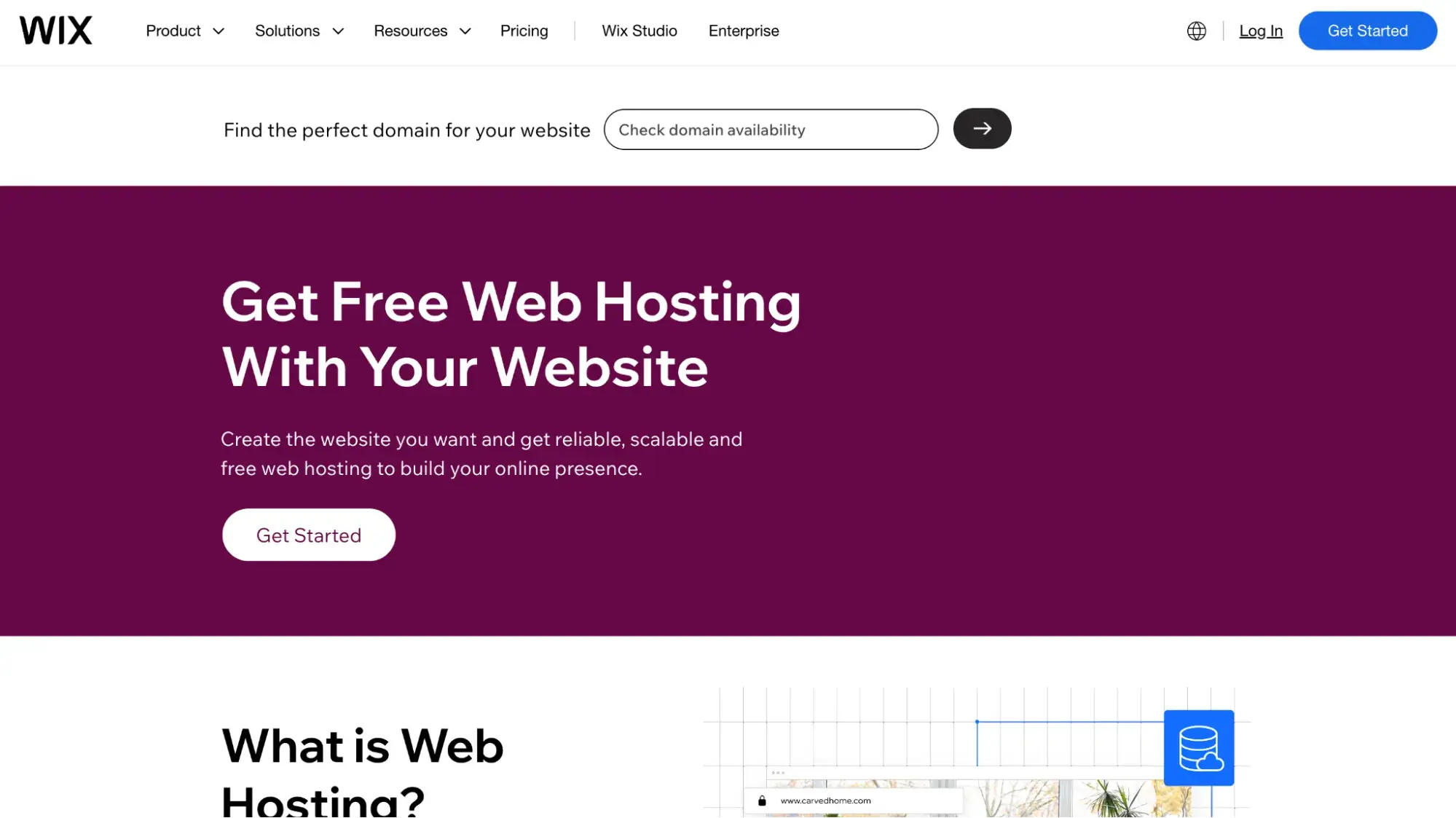
WordPress Hosting: Top Providers for Fast, Reliable Websites in 2023
When it comes to building a website, WordPress hosting is one of the most critical decisions you will make. A reliable hosting provider ensures your site runs efficiently, loads quickly, and remains accessible to visitors at all times. In this comprehensive guide, we’ll explore everything related to WordPress hosting, helping you make an informed choice that aligns with your goals.
1. Understanding WordPress Hosting

What is WordPress Hosting?
WordPress hosting is a specialized type of web hosting tailored specifically for WordPress websites. Unlike traditional hosting services that can accommodate any kind of website, WordPress hosting offers optimized server configurations, security features, and tools designed for WordPress users. When choosing a hosting service, it’s vital to understand what makes it different from conventional hosting options.
Key Features of WordPress Hosting
- Optimized Performance: Servers configured to handle WordPress sites effectively, ensuring faster loading times.
- Automatic Updates: Regular updates for WordPress core, themes, and plugins to maintain security and functionality.
- Easy Installations: One-click installations streamline the setup process for WordPress.
- SSL Certificates: Many providers include free SSL certificates to enhance your site’s security.
- Customer Support: Specialized support teams familiar with WordPress can help resolve issues quickly.
Types of WordPress Hosting
There are various types of WordPress hosting available, each catering to different needs:
- Shared Hosting: Cost-effective and ideal for beginners, but performance may be limited due to shared resources.
- Managed WordPress Hosting: Premium service where the host takes care of maintenance tasks, security, and backups.
- VPS Hosting: Offers dedicated resources and improved performance for medium to large-sized websites.
- Dedicated hosting: Exclusive server access for high-traffic sites needing maximum performance and control.
- Cloud Hosting: Flexible resources that grow with your site’s needs, allowing for scalability.
Why Choose WordPress Hosting?
Choosing WordPress hosting can significantly impact your website’s success. A specialized hosting environment can provide enhanced performance, security, and ease of use, making it easier for you to focus on content creation rather than technical issues.
2. Factors to Consider When Choosing a WordPress Hosting Provider

When selecting a WordPress hosting provider, several factors should guide your decision. Here are key elements to keep in mind:
Performance and Speed
The speed of your website directly influences user experience and SEO rankings. Look for hosting providers known for their fast load times and excellent uptime records. Review customer testimonials and third-party performance tests to gauge effectiveness.
Security Measures
Security is paramount in today’s digital landscape. Ensure that your hosting provider offers robust security features like DDoS protection, firewalls, malware scanning, and automatic backups to protect your data from threats.
Customer Support
Responsive customer support can save you time and headaches. Opt for a hosting provider with round-the-clock support via multiple channels, such as live chat, email, or phone. Make sure they have representatives knowledgeable about WordPress.
Scalability Options
As your website grows, so will its needs. Choose a hosting provider that offers scalability options, whether through upgrading plans or adding resources seamlessly as your traffic increases.
Pricing and Value
While price shouldn’t be the only factor, it’s essential to balance cost with value. Evaluate the features offered at each pricing tier and consider potential additional costs for add-ons like backups, premium support, or domain registration.
3. Top WordPress Hosting Providers in 2023

With numerous options available, identifying the best WordPress hosting provider can be challenging. Here’s a brief overview of some leading companies in 2023:
Bluehost
Bluehost is widely recommended by WordPress.org itself, making it a popular choice for beginners. With affordable plans, easy installation, and strong customer support, it’s a solid option for new website owners.
SiteGround
SiteGround is known for its outstanding customer service and high-performance hosting. Their managed WordPress hosting includes premium features like daily backups and advanced caching solutions.
WP Engine
For those looking for premium managed hosting, WP Engine is a top contender. It provides excellent speed, security features, and a user-friendly interface, making it ideal for businesses or larger websites.
DreamHost
DreamHost is recognized for its commitment to privacy and transparency. Their managed WordPress hosting comes with unlimited storage and bandwidth, suitable for growing websites.
Kinsta
Kinsta utilizes Google Cloud Platform to offer cutting-edge performance and security. This premium hosting solution is ideal for developers and businesses requiring robust resources and advanced features.
4. How to Migrate Your WordPress Site to a New Host
Switching hosting providers can seem daunting, but with proper planning and execution, it can be a smooth process. Here’s a step-by-step guide on migrating your WordPress site:
Step 1: Back Up Your Website
Before starting the migration process, create a complete backup of your website, including files and databases. Use a plugin like UpdraftPlus or BackupBuddy to simplify this task.
Step 2: Choose a New Hosting Provider
Select a new WordPress hosting provider based on your research. Sign up for a plan and set up your new hosting account.
Step 3: Transfer Files
Using FTP software (like FileZilla), connect to both your old and new hosting accounts. Download all your website files from the old server and upload them to the new one.
Step 4: Export and Import Database
Access phpMyAdmin on your old host to export your WordPress database. Then, import it into the new host’s phpMyAdmin interface.
Step 5: Update wp-config.php
Modify the wp-config.php file in your website files to reflect the new database name, username, and password for your new hosting account.
Step 6: Point Your Domain
Update your domain’s DNS settings to point to the new hosting provider. This may take some time to propagate, so check regular intervals.
Step 7: Test Your Website
Once the DNS changes have propagated, thoroughly test your website to ensure everything functions correctly. Monitor for any issues and address them promptly.
5. Tips for Optimizing Your WordPress Hosting Experience
Once you’ve chosen a WordPress hosting provider, optimizing your hosting experience can further enhance your website’s performance. Here are some practical tips:
Utilize Caching Plugins
Caching plugins like W3 Total Cache or WP Super Cache can dramatically improve load times by storing static copies of your pages and serving them quickly to users.
Optimize Images
Large image files can slow down your website. Use image optimization tools like Smush or Imagify to compress images without sacrificing quality.
Regularly Update WordPress
Keep your WordPress core, themes, and plugins updated to avoid vulnerabilities. Enable automatic updates if your hosting provider supports it.
Implement a Content Delivery Network (CDN)
A CDN distributes your website’s content across multiple servers globally. This reduces loading times for international visitors and enhances overall site speed.
Monitor Performance
Use tools like Google PageSpeed Insights or GTmetrix to regularly monitor your website’s performance. Implement suggested improvements to maintain optimal speed and effectiveness.
FAQs
What is WordPress hosting?
WordPress hosting is a specialized web hosting service designed specifically for WordPress websites, offering optimized configurations and features to enhance performance and security.
Can I use regular hosting for my WordPress site?
While you can technically use regular hosting for WordPress, it is not recommended due to potential performance issues. Specialized WordPress hosting providers cater better to the unique needs of WordPress sites.
Do I need technical skills to use WordPress hosting?
Not necessarily. Most WordPress hosting providers offer user-friendly interfaces and one-click installations, making it accessible even for those with minimal technical knowledge.
How much does WordPress hosting cost?
Prices vary widely based on the type of hosting and provider. Shared hosting can start as low as $3–$10/month, while managed hosting can range from $20 to over $100/month.
Is WordPress hosting secure?
Many WordPress hosting providers implement robust security measures, including firewalls, malware scanning, and regular backups, to protect your website from threats.
Conclusion
In conclusion, selecting the right WordPress hosting provider is a crucial step in creating a successful website. By understanding the different types of hosting, evaluating key features, and following best practices for optimization, you can create a robust online presence tailored to your specific needs. Whether you’re a beginner just starting or an experienced developer managing multiple sites, investing time in researching and choosing the right hosting solution will pay off in the long run.




